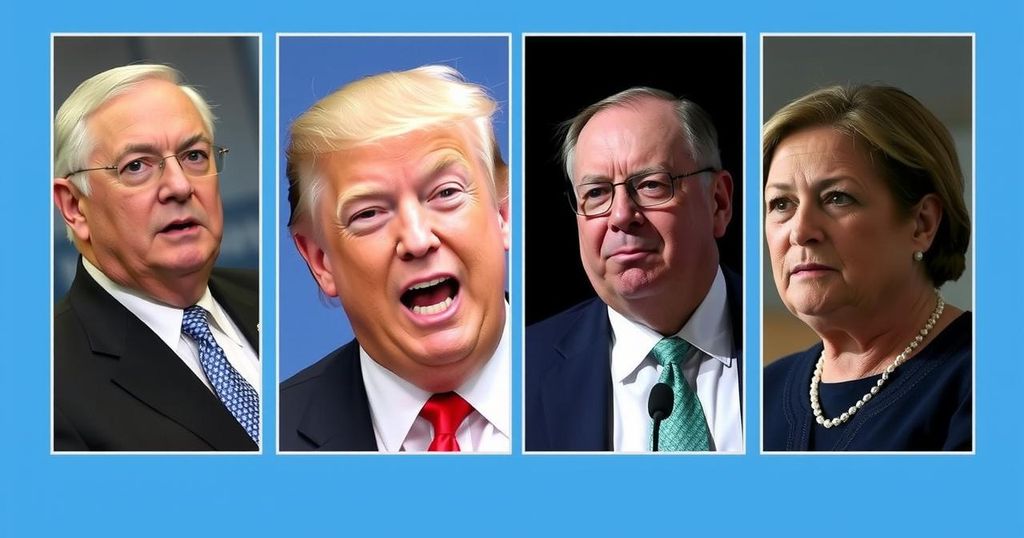Following Donald Trump’s recent election victory, several Democratic governors are modifying their approaches from criticism to a focus on collaboration. While some, like Governors Kathy Hochul and Phil Murphy, seek common ground, others, such as Gavin Newsom, prepare for legal challenges. This dynamic illustrates the complexities governors face in balancing party stances with the imperative to govern effectively under an administration they previously opposed.
In the aftermath of the recent election, several prominent Democratic governors are shifting their stance toward President-elect Donald Trump, moving from fierce criticism to a focus on collaboration. This adjustment is driven by a recognition of the necessity to work with the incoming administration to ensure effective governance. While some governors, like New Jersey’s Phil Murphy and New York’s Kathy Hochul, emphasize a balanced approach in their dialogues with Trump, others, such as California’s Gavin Newsom, remain staunch opponents, anticipating legal confrontations.
Specifically, governors like Hochul have expressed hope for bipartisan cooperation, particularly on critical infrastructure projects, while firmly committing to defend reproductive rights—a key issue in their platforms. In contrast, leaders like Newsom continue to mobilize legislative efforts to counteract Trump’s policies, reflecting a spectrum of responses among Democratic governors. Meanwhile, Illinois’ J.B. Pritzker and Colorado’s Jared Polis have organized initiatives aimed at protecting democratic principles against potential overreach by the Trump administration.
The governors’ varying approaches illustrate a strategic balancing act between maintaining party solidarity and recognizing the political landscape necessitated by Trump’s electoral success. Massachusetts Governor Maura Healey has moderated her previous criticisms, emphasizing pragmatic governance while remaining firm on state rights issues. Michigan’s Gretchen Whitmer, known for her strong opposition to Trump, is similarly adopting a cautious strategy, focusing on shared priorities rather than immediate confrontation. This initial post-election period marks a significant transition for these governors as they navigate the complexities of their relationships with the incoming Trump administration.
The context of this article arises from the significant political shift following the recent elections, where Donald Trump was reelected as President. Democratic governors, who previously characterized Trump’s leadership as detrimental, are now confronted with the prospect of working alongside him. This necessity emerges from the understanding that collaborative governance may lead to more successful outcomes for their states, particularly concerning critical issues like infrastructure and public health. This period also indicates a broader struggle within the Democratic Party regarding how to engage with a Trump-led administration while preserving fundamental values and addressing constituents’ concerns.
In conclusion, the responses of Democratic governors to President-elect Donald Trump reveal a nuanced approach, oscillating between criticism and cooperation. While some governors remain firm in their opposition to specific policies, others prioritize pragmatic collaboration to achieve state objectives. This balancing act reflects the complex interplay between political allegiance and the practicalities of governance within a divided political landscape. As these governors navigate their new reality, their strategies will likely influence broader Democratic approaches to the Trump administration.
Original Source: apnews.com







